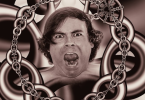The Loneliness of Relief
When a narcissist dies, the initial feeling can often be one of relief. In my case, I wasn’t sad, I wasn’t angry—I simply felt a sense of finality. The looming threat was over. But this relief comes with complications. You can’t tell people that you’re relieved your parent has died. You can’t explain that the lack of sadness is because of years of hiding and protecting yourself from someone violent and toxic.
This unspoken truth creates an isolating experience. To most people, you may seem callous or unfeeling, and that can be incredibly lonely. It’s a new form of ostracism—being cast aside for feelings that others can’t understand unless they’ve lived through similar trauma.
Read More: 4 Ways To Manipulate a Narcissist and Shut Them Down
How a Narcissist Destroys Your Body?
The Hollow Ache of Betrayal
In the days following my father’s death, the initial relief was quickly replaced by an aching sense of betrayal. The brief hope I had—that in death, something might change—was dashed. There were no words of apology, no gesture of reconciliation. Instead, I was explicitly written out of his will, as if his manipulation and cruelty reached beyond the grave.
It wasn’t just his betrayal I felt—it was the betrayal of my siblings, who chose to continue enabling his behavior until the end.
Related: 7 Indicators of Mental Abuse by Narcissists
Continue reading on the next page
Sharing Is Caring!





